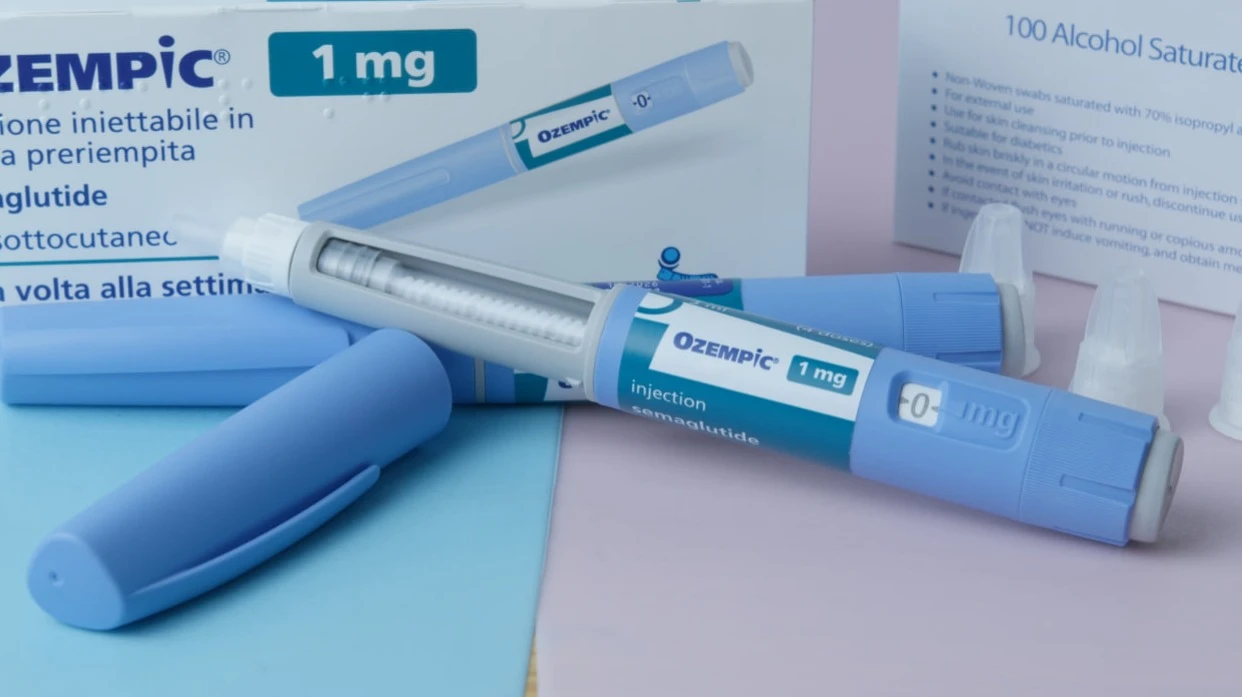China approves Ozempic's first domestic competitor. What do investors need to know?

Innovent Biologics is the first company in China to mount a real challenge to pharmaceutical giants Novo Nordisk and Eli Lilly in the obesity market. The approval of its weight loss drug opens a new chapter in the rapidly growing Chinese market, where local manufacturers are seeking to squeeze out foreign leaders with their expensive GLP-1 injections. What will the increased competition lead to and should the makers of Ozempic and Mounjaro be wary of the Chinese threat?
Details
Pharmaceutical companies Novo Nordisk and Eli Lilly, which dominate the global market for obesity drugs, face their first serious competitor in China - Suzhou-based Innovent Biologics won approval for its drug mazdutide on June 27, wrote Bloomberg.
Mazdutide was approved following a Phase III clinical trial in which patients lost 14% of their body weight in 48 weeks (after taking into account the placebo effect). That effectiveness puts the Chinese drug on par with Eli Lilly's Zepbound, noted by Bloomberg Intelligence analysts in October. Mazdutide has "impressively low treatment failure rates" (e.g., due to intolerance) compared with similar drugs, they said. Bloomberg Intelligence estimates that sales of mazdutide could reach 4.6 billion yuan ($642 million) by 2027.
Eli Lilly shares dropped 3% on news of the approval of mazdutide in China on Friday, June 27. In Monday's premarket, their price was little changed relative to Friday. Novo Nordisk shares, on the contrary, rose by 1% on Friday. The stock was up about 2% on Monday relative to Friday's closing price.
What this means for Novo and Lilly
The approval of mazdutide is a turning point in China's efforts to combat rising obesity and diabetes rates with homegrown Innovent, notes Bloomberg. Still, Innovent has major hurdles to overcome to compete with Novo and Lilly in the commercial market. Foreign drugs have traditionally been highly trusted and popular in China, where the local biotech industry still faces consumer skepticism due to previous quality issues, Bloomberg writes.
However, the prevalence of Novo and Lilly drugs in China is still "extremely low" compared with Western countries, said Chen Chen, head of Chinese healthcare research at UBS Securities. Novo won't start launching obesity drugs in China until 2024, while Lilly will only launch this year.
Next year, competition in the Chinese market is expected to intensify - Novo Nordisk's patent for semaglutide, the active ingredient in Ozempic and Wegovy, will expire, and domestic analogs will be able to enter the market, Bloomberg writes. The emergence of cheaper alternatives may force Novo and Lilly to lower prices to expand access to their drugs in a country with a population of 1.4 billion people, the agency said.
"We think foreign companies may be more willing to cut prices on their weight-loss drugs in China, as is already happening in the U.S. market, where major weight-loss makers have begun to enter into price competition," Yang Huang, senior China health research analyst at JPMorgan, told Bloomberg.
China is still only a small share of the global obesity market, which is projected to grow to $150 billion, Bloomberg writes. However, it is growing rapidly: according to various estimates by analysts, the Chinese market could reach between $5.6 billion and $11.4 billion a year. According to a prediction published in The Lancet, there will be more than 600 million overweight adults in China by 2050. According to LEK Consulting, more than 30 Chinese developments to treat obesity are now in late-stage clinical trials.
"[In the future] you will see a lot more competitors in the Chinese market than anywhere else. It's unlikely that one or two companies will dominate the entire market," Justin Wang, head of LEK's China unit, told Bloomberg.
This article was AI-translated and verified by a human editor
